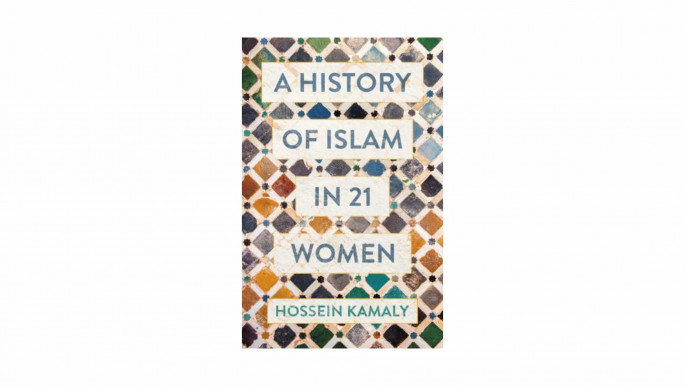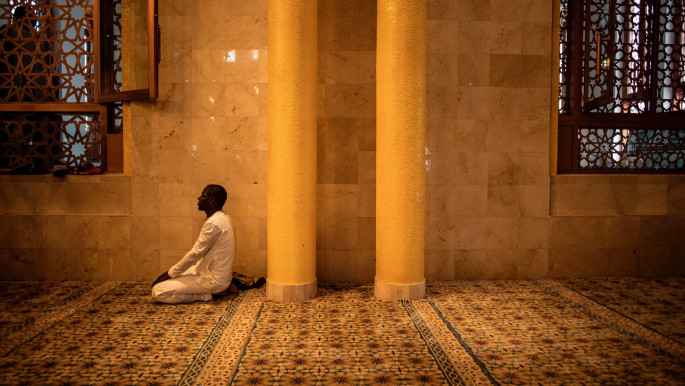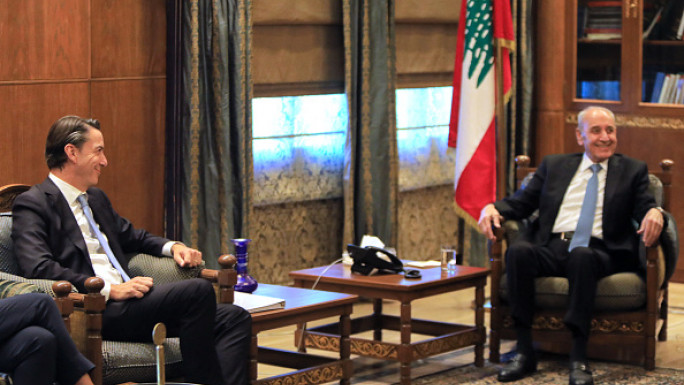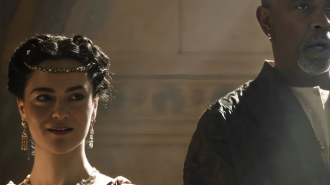A History of Islam in 21 Women by Hossein Kamaly
'If you don't know your past, how will you know where you're going?' is a popular sentiment, usually told to the children and grandchildren of immigrants.
Yet, when reading A History of Islam In 21 Women, you experience a crash course of different Islamic eras through historical Muslim female figures. It's the perfect example of what's missing in our curriculums, our history books and most importantly, how we've come to view Muslim women today.
Author Hossein Kamaly makes it clear in his introduction that "the number twenty-one [of the book title] hints at the contemporary relevance of the material in our time - the twenty-first century… However, doing history by numbers has both benefits and limitations." Meaning, there haven't been just twenty-one Muslim women who have shaped the course of Islam.
Instead, when reading through the different eras of Islamic history, we are confronted with the knowledge that our history has only been half told - that it's women who have shaped the fate of Islam.
Whether it's deciding to follow the Prophet Muhammad's biological lineage through Shia Islam or Muhammad's last wife, Aisha, into what is known today as Sunni Islam.
 |
|
Or if we're moving away from the Prophet Muhammad's time, the impact of Terken Katun's prosperity as the Empress of the Khwarazmian Empire or Nana Asma'u, the princess, poet and founder of the Sokoto Caliphate in West Africa.
Let's not also forget Nur Jahan's life of both pain and pleasure, through the respects for her fine art tastes and military mind, as Empress of the Mughal empire. She did this beside the emperor Jahangir, the same man who killed her previous husband and brother and whose legacy she saved. As Kamaly writes, "Nur Jahan was unbreakable". That can be said for many, if not all the Muslim women, in this collection.
A History of Islam In 21 Women is not just a rose-tinted view of history from centuries ago, a time of Muslim warriors, princesses, designers, leaders and wives whose powers influenced countries, not just their husband's requests; this title is also brought into the 21st century with notable modern women.
These include Noor Inayat Khan, a British spy and the first female wireless operator to be sent into occupied France during World War Two, as well as the recently passed Dame Zaha Hadid, a prestigious architect and the first woman to be awarded the Pritzker Architecture Prize in 2004.
On the other hand, A History of Islam In 21 Women attempts to separate the verified Hadiths of the Prophet Muhammad and how he centred women's rights in his teachings from unsubstantiated sayings about how Muslim women were supposedly expected to behave. The book notes how Muhammad said: "Women prevail over good men, and lowly men prevail over women".
 |
We are confronted with the knowledge that our history has only been half told - that it's women who have shaped the fate of Islam |  |
The collection of stories also depicts how inexplicably political Islam has always been. How through time, the patriarchal, commercial and cultural agendas that come from made-up Hadiths attempt to curb women's rights. "We should bear in mind that in most narratives about this formative period of Islam were all carefully reworked to establish some political or theological point," says Kamaly.
A History of Islam In 21 Women shows Muslim women have also been key in dismissing twisted words in the name of the Prophet Muhammad or Islam itself. Describing Aisha's actions, Kamaly writes, "On many occasions, she dismissed what other companions of the prophet reported about his sayings and actions; especially when those companions, most of them men, talked about the Prophet's personal conduct towards his wives or what he had instructed women to do."
"Aisha questioned how they could have heard, seen or known anything about it. Women had been present; men had not," he wrote.
 |
|
| Read more from The New Arab's Book Club: An essential reading list on Black Muslim history |
A History of Islam In 21 Women is a combined artefact of how powerful it is when women use their voice - and when that voice is then heard instead of dismissed. This is shown time and time again throughout the book.
One example of this is the historically documented speech of the Prophet's daughter, Fatima, when she demanded her Islamic right to inherit property to Abu Bakr, after her father's death. "Is it in the Book of God that you inherit from your father and I do not inherit from my father?... Does the Quran command that you should 'render to the kindred their due rights?"
Another example was the sway and authority of Rabia Al-Adawiyya's speeches inside and outside of mosques, which formed the foundations of Sufism, that are still lived by today.
The title, published by One World, also demystifies common Western Islamophobic insults thrown at Muslim women of today. One of these being you cannot be for women's rights and progression if you are Muslim. Insults usually include misinformed stories on the Prophet Muhammad marrying six-year-old Aisha, instead of realising that numbers were used as symbols to show piety and purity.
 |
When reading A History of Islam in 21 Women, you experience a crash course of different Islamic eras through historical Muslim female figures |  |
Through the twenty-one lives in Kamaly's book, the message is clear: for Islam to be the world's fastest-growing religion, it had to be fluid and understand that there's no one way to be Muslim. Its history doesn't bear the rigidity of the singular Muslim experience many Muslims are faced with today.
Just like Kamaly questions, "Do domestic tasks merit the attention of the historian? They should", the women missing from this text are the billions who have not become recognised icons, those who are not printed inside the history books. But who are instead, just as influential, in their own, everyday right. Those who were paupers, not princesses, empty-bellied, not empresses, and noble workers instead of notable warriors.
What A History of Islam In 21 Women exhibits is that there's no such thing as being 'the first Muslim X'. If you were to become a Muslim leader, a Muslim politician, a Muslim poet or Muslim soldier, you would not be the first.
Muslim history is not anything new, no matter how many headlines we witness finally recognising Muslim changemakers. Firsts are impossible to be or place as a Muslim woman, once you know your history.
Tahmina Begum is a freelance journalist and editor.
Follow her on Twitter @tahminaxbegum
The New Arab Book Club: Click on our Special Contents tab to read more book reviews and interviews with authors:
 |
|





 Follow the Middle East's top stories in English at The New Arab on Google News
Follow the Middle East's top stories in English at The New Arab on Google News


